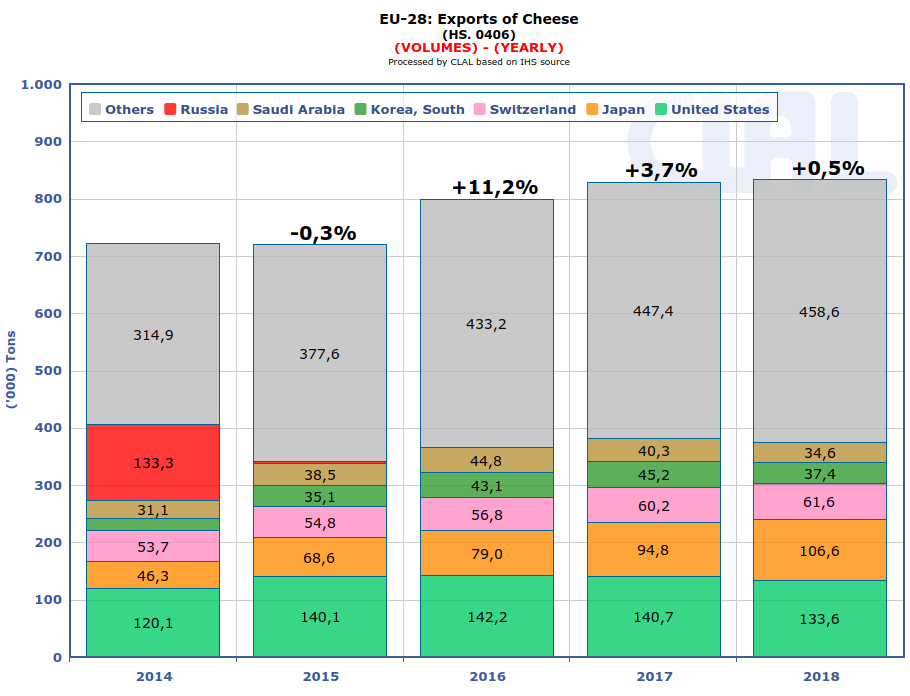Attilio Zanetti, vice president of the European Dairy Association, the European federation based in Brussels that brings together all the European dairy associations of the EU Member States, the italian Assolatte included, confides his concerns to us about the commercial tensions between the European Union, United States and China that are likely to hit the Italian dairy sector heavily.
Zanetti spa is the largest exporter of Grana Padano and Parmigiano Reggiano. While the threat of imposing duties on Italian cheeses by President Trump seems increasingly real, which is the state of play and what are the risks for the sector?
“On April the 9th, the Office of the United States Trade Representative released a list of European products that could be subject to additional duties following the EU-US dispute related to the Boeing-Airbus cases. The list includes – among others – butter, yogurt and some cheeses. Those currently involved are Asiago, Fontina, Mozzarella di Bufala Campana, Pecorini, Taleggio.
The USA is the first extra-EU market for Italian cheeses
Like Pecorino which is, in fact, one of the products affected by the toll payment. If the US administration’s initiative were to be confirmed, we would certainly record a drop in exports of Italian pecorino, with lasting effects on the crisis of the Pecorino Romano supply chain, which was born precisely from the combination of an excess supply and a drastic decrease in the US demand (-40% last year), the largest foreign market for this product. For the time being, in the US black list there are no Gorgonzola, Grana Padano and Parmigiano Reggiano, but the latest events show that the entire dairy sector is at risk.
Considering the unpredictability of President Trump’s decisions, we must prepare for the worst
It looks like a perfect picture for Parmesan producers…
The organizations that represent US producers have mobilized to ask Trump to consider the hypothesis of barring the import of European cheeses
The theses of our American competitors are naturally imaginative. Due to the principle of territoriality, to be able to export and market products – in the European Union as well as in the United States – we are all obliged to respect the rules of the legal system in which we operate, without violating the rights of third parties or imposing our rules. In order to export to the United States, Italian producers are required to comply with American regulations without questioning their system, and the same is asked to Americans who want to export in Europe, while they are disputing the entire system of geographical indications. In addition, I would add that the Italian Consortium, in full compliance with the rules imposed by the United States Statutes, and the WTO system, have requested and obtained in the US, in accordance with local legislation, the protection of names registering them as “trade marks”.
So Grana Padano, Parmigiano Reggiano, Pecorino Romano are therefore registered as trademarks in the United States. Unfortunately other cheeses, such as Gorgonzola, Asiago, Fontina, just to name a few, have not proceeded to register, and therefore these names are used freely and legally by US producers for name locally produced copies.
The importation of American cheeses into the EU is possible and legitimate
The American consortium complains of not being able to export the aforementioned cheeses to the European Union, which is absolutely not true. The importation of American cheeses into the EU is possible and legitimate, what is not legitimate is the use of denominations that in the European Union are protected in accordance with our laws.
The arguments of the Consortium of food name are therefore completely groundless, but risk being accepted by the Trump administration for electoral reasons. It would be a serious damage to our industry, but also to American consumers.”







